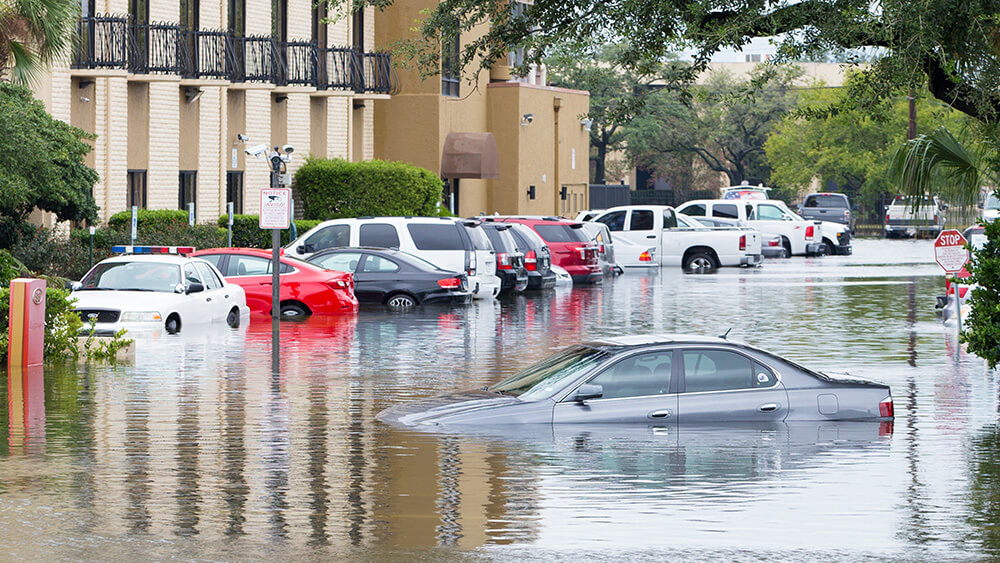
The number of business events disrupted by the fallout of extreme weather, including wildfires, heat, or flooding, is growing quickly, as are costs to event organizers and losses to communities.

Sherrif Karamat, CAE,
President & CEO, PCMA and CEMA
First the bad news: 2023 was the hottest year on record, and as I write this, just past the midpoint of 2024, some scientists predict that this year will be even hotter. As temperatures continue to shatter records, the number of global extreme weather events is climbing. Record rainfall and flooding in southern Brazil in late April and May, linked to climate change by scientists at World Weather Attribution, collapsed a dam and displaced thousands of people. In June, excessive heat killed more than 1,300 people making the Hajj pilgrimage in Saudi Arabia.
The effects of extreme weather won’t bypass business events. The number of events disrupted by extreme weather events, including wildfires, heat, or flooding, is growing quickly, as are costs to event organizers and losses to communities. Destinations where temperatures are reaching dangerous highs or that sit in the path of more frequent, more ferocious storms face additional risks to their economies — the danger is that their appeal will wane among event organizers who are placing greater weight on weather considerations in site selection.
Where is the good news in all of this? It’s this: We can change the future, if we face the realities of the climate crisis head on. “Do we watch the world burn, or do we choose to do what’s necessary to achieve a different future?” asked Christina Figueres, head of the UN climate change convention from 2010 to 2016, in her 2020 book, The Future We Choose. Though Figueres and co-author Tom Rivett-Carnac described, in hellish detail, a world in which we will find ourselves if we fail to act to reduce carbon emissions, they offered an alternate vision of the future, achieved through profound shifts in our thinking and behavior and transformed by regenerative economies that replenish, rather than destroy, natural resources. Today, Figueres remains optimistic, even as temperatures exceed the thresholds she warned about four years ago. Last year, renewable energy — a key to a net-zero emissions future — generated a record 30 percent of global electricity, and she is encouraged by the architects, engineers, social entrepreneurs, and others advancing new systems, she wrote in The Guardian in May. “We are on the brink of positive societal tipping points,” she added. “A sense of despair is understandable, but it robs us of our agency … and it prevents the radical collaboration we need.”
At PCMA, we are setting the stage for a new era of solutions-focused collaboration, as we prepare to host the inaugural Convene 4 Climate, Oct. 2-3 in Barcelona, in partnership with the Strategic Alliance of National Convention Bureaux of Europe and others. It will bring sustainability decision makers, advocates, and practitioners within our industry together with those in other sectors, where we will challenge ourselves to chart imaginative and equitable new paths toward our shared future.
We have a shared responsibility to respond to this global crisis, not only within the events industry, but in our role as a platform for catalyzing new ideas and innovation and accelerating their spread in every corner of the world.
Sparking Productivity
We’ve heard from you that you don’t need more stories about how AI could theoretically help you do your job better, but more down-to-earth examples of how event professionals use it to get things done in their day-to-day work lives. In a new AI column, Valerie Sumner, co-owner of VRS Meetings & Events, delivers exactly that, sharing three ways she uses AI — and specifically PCMA’s Spark tool — to save time and get better results.
